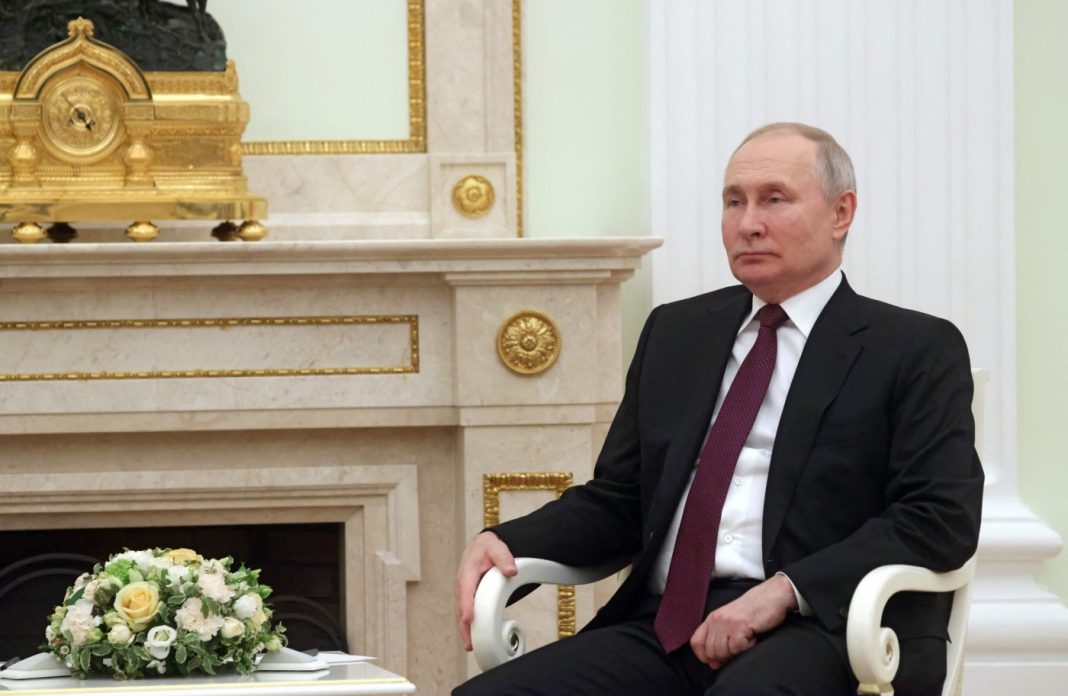KABUL, Afghanistan — Russia has become the first country to officially recognise the Taliban as the legitimate government of Afghanistan, marking a dramatic shift in international diplomacy and raising new questions about global engagement with the Islamist group nearly four years after its return to power.
The announcement was delivered on Thursday, July 3, 2025, by Russia’s ambassador to Afghanistan, Dmitry Zhirnov, during a meeting in Kabul with Afghanistan’s Foreign Minister, Amir Khan Muttaqi.
Moscow’s formal recognition of the “Islamic Emirate of Afghanistan” marks the beginning of what both sides hailed as a new chapter in bilateral relations.
“This is a courageous and historic step,” Muttaqi said, adding that the move would serve as “an example” to other nations.
“It signifies a new phase of positive relations, mutual respect, and constructive engagement.”
In a statement, Russia’s foreign ministry said the decision would facilitate “productive bilateral cooperation” and highlighted potential areas of commercial collaboration, including energy, transportation, agriculture, and infrastructure.
It also pledged continued support in counter-terrorism and anti-narcotics efforts.
“We believe that the act of official recognition… will give impetus to the development of productive bilateral cooperation between our countries,” the ministry said.
Russia’s embassy in Kabul never closed following the Taliban’s seizure of power in August 2021.
Since then, Moscow has maintained regular contact with Taliban officials, positioning itself as a pragmatic player in the region.
It was also the first country to strike a formal economic deal with the Taliban in 2022, agreeing to supply oil, gas, and wheat to Afghanistan.
In April 2025, Russia removed the Taliban from its official list of terrorist organisations—a legal manoeuvre widely seen as a prelude to Thursday, July 3, 2025’s full diplomatic recognition.
President Vladimir Putin had earlier referred to the Taliban as an “ally” in the fight against terrorism, and representatives of the group have attended several summits in Moscow dating back to 2018.
The announcement comes against the backdrop of a fraught history between the two nations.
The Soviet Union’s 1979 invasion of Afghanistan triggered a bloody nine-year conflict that claimed over 15,000 Soviet lives and turned the USSR into an international pariah.
The Soviet withdrawal in 1989 ended the direct military involvement, but left a legacy of mistrust and political instability.
Despite this history, Russia has in recent years cultivated a strategic relationship with the Taliban, citing shared interests in regional stability and security.
Russian officials argue that engagement is a practical necessity in light of the Taliban’s control over Afghan territory and governance structures.
The move places Moscow at odds with Western governments and international human rights organisations, which have broadly condemned the Taliban’s governance, particularly its severe restrictions on women and girls.
Since seizing power, the Taliban have implemented a harsh interpretation of Islamic law, barring women from secondary and higher education, prohibiting them from working in most public spaces, and enforcing strict dress codes.
Recent legislation has banned women from speaking in public outside their homes, under what the United Nations has described as a system of “gender apartheid.”
Public floggings, arbitrary detentions, and attacks on former officials have also been documented by the UN and human rights groups.
In response to the Taliban’s policies, the United Nations Security Council imposed sweeping sanctions in 2021, including the freezing of an estimated $9 billion in Afghan central bank assets.
While several countries—including China, Pakistan, the UAE, and Uzbekistan—have stationed ambassadors in Kabul, none had formally recognised the Taliban regime until Russia’s announcement.







